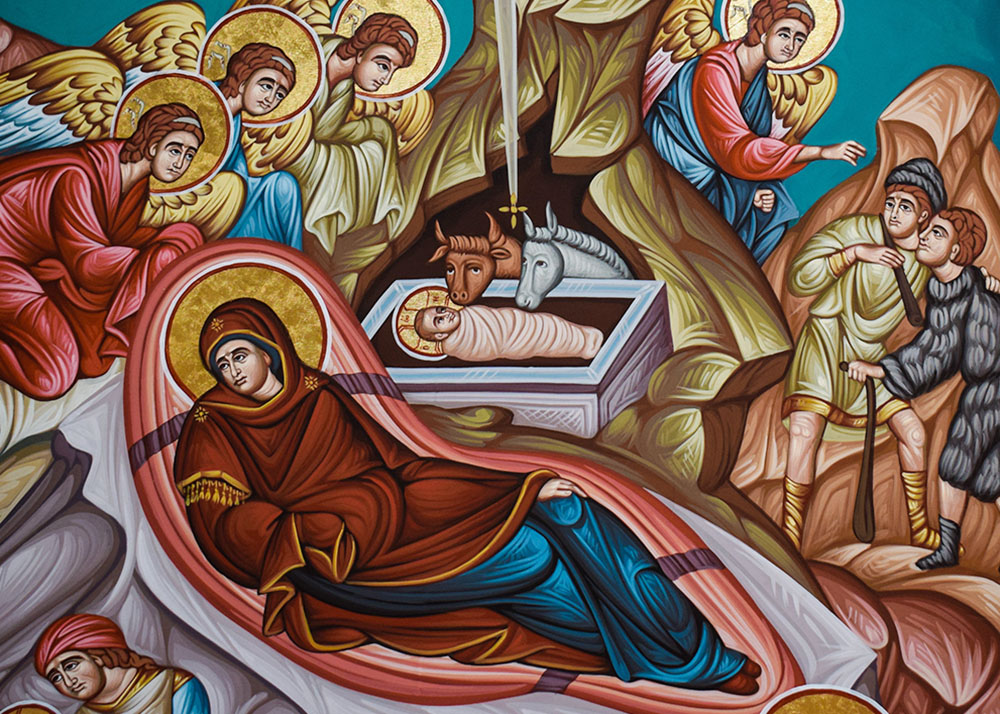
(Pixabay/Dimitris Vetsikas)
Seeing Santas at every corner and checkout counter, Christmas trees adorning every public place, lights blinking and "Joy to the World" blaring from all directions, we tend to forget the historical contexts of the Scriptures that situate the prophecies and birth stories of the Savior.
Isaiah aptly portrayed his own and Jesus' times by describing people walking in darkness and dwelling in a land of gloom, people who suffered under the rod of an overseer: treated like yoked oxen, valued for their labor and taxes, people whose personhood had ceased to matter. There was little of prosperity or joy stirring while Mary and Joseph trudged along for the 90 miles that separated Nazareth from Bethlehem.
The census that put them on the road, whether historically verifiable or not, symbolized the people's subjugation to a pagan empire. (Israel had been taught that a census of her own was sacrilegious because it demonstrated that the king would rely on his brute power — armies and taxes — rather than God's providence.)
In Luke's infancy narrative, which includes the Annunciation and Visitation, the journey to Bethlehem and lack of room at the inn are the story version of the poetic prologue of John's Gospel, which speaks of the eternal Word becoming flesh and being rejected by his own.
It seems that every epoch, every century of human history, must lament its share of what Isaiah described as boots that trample in battle and cloaks soaked with blood. But those are not nice to think about.
At this time of year, we would prefer that TV show us less of the wars and more of Macy's Parade. Nevertheless, we'll miss the evangelical message of Christmas if we allow ourselves to sleep in heavenly peace, satiated by Hallmark.
Jesus was born in desperate circumstances. His parents, like the 100 million people forced to be on the move today, had no insurance policies, no AAA roadside help and no credit cards to buy their way in somewhere. With no insulation from ever-present difficulties and danger, they were dependent, hopeful for the kindness of strangers.
In this, Mary and Joseph were icons of God and the child they were about to receive into the world. The Creator did not exercise power and might, but set the universe on a course of evolution in which divine love would one day take on flesh and need to rely on the goodwill of people with generous, open hearts.
We must remember that God did not do this to shame the comfortable, but to bring joy to the needy. In Luke's version of the story, neither religious leaders nor the wealthy represented by the Magi noticed the signs of their times.
Who did notice? The shepherds, people of shady reputation, unwashed and unable to observe religious laws — they took the angels' message to heart. These were the ones who, in spite of their fear, left their 99 (more or less) and hastened to Bethlehem to see "what the Lord has made known to us." Then the shepherds became the first evangelists, "glorifying God and making known the message."
Advertisement
For Christians, the Incarnation is the high point of creation. All of the universe exists from God; God is present somehow in everything as a result of divine love. Now we can understand the Incarnation as the essence, the most concrete expression of the revelation of divine love and our clearest image of what God is like. And with this, the story gets more challenging.
When angels appeared to shepherds they said, "You will find an infant wrapped in swaddling clothes."
This very ordinary scene turns out to be a scandalous theophany; God's greatest self-revelation is of divinity in diapers. Traditional Byzantine icons of the Nativity depict this by showing the swaddled infant in a manger that could also represent a coffin, his wrapping cloths like those used in burial.
In theologian St. Joseph Sr. Elizabeth Johnson's words, the Incarnation "enacts the kind of divine love that ... enters empathetically into [human] experience, self-identifying with the glory and agony of human life from within, befriending even the godless and the godforsaken."
The evangelical message of Christmas is just that. God longs to be with us, God loves us profoundly and respectfully enough to share our mortal life. From such love, God has become vulnerable to us, never imposing but inviting us into a union possible only when God enters into human life.
The babe wrapped in swaddling clothes is a sign that God exercises power as faithful, loving committed accompaniment in vulnerability. And all of this, to invite us to become like the God who dwells among us, seeking to find a home in us.
